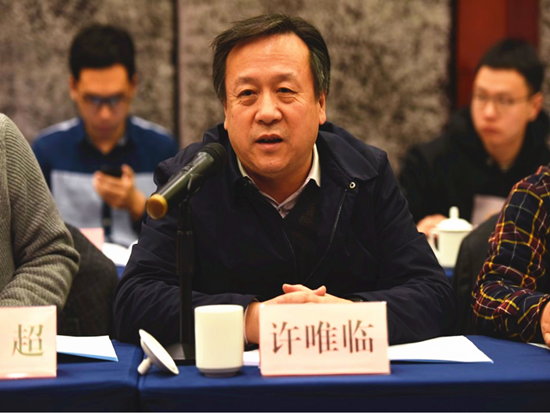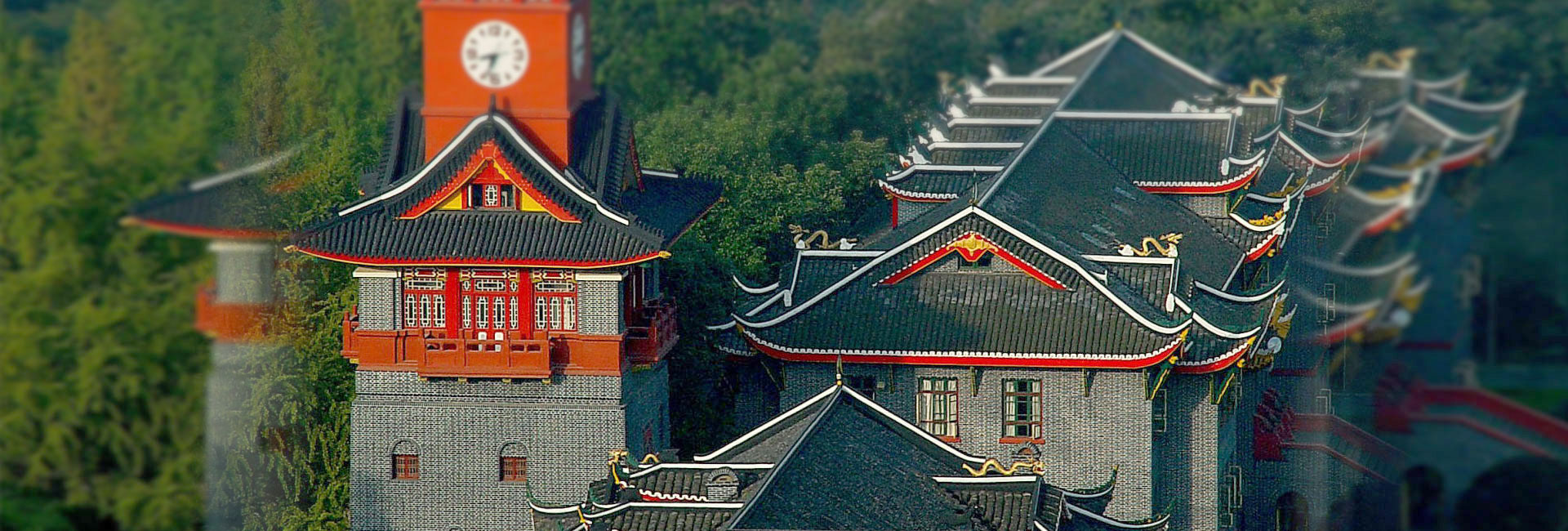An inaugural meeting / hearing of the national key project “Key Technologies for Dynamic Disaster and Risk Prevention and Control of Major Landslides in Qinghai-Tibet Plateau” was held in Chengdu recently. Professor Jianhui Deng, College of Water Resource and Hydropower, Sichuan University, is the project leader. The expert team of the project consists of seven members including Peng Cui, academician of the Chinese Academy of Sciences and Hongfei Liu, chief engineer of Department of Natural Resources, Tibet Autonomous Region. About 60 people attended this meeting. Among those attendees were Deputy Director Yunhui Tian of Science and Technology Department of Sichuan Province, Vice President Weilin Xu of Sichuan University; Ping Zhong, Vice Director of Global Branch of China Agenda 21 Century Management Center, heads of relevant units such as Sichuan Science and Technology Department, SCU College of Water Resource and Hydropower; SCU Office of Scientific Research and Development, and project members, etc. Tao Hu of SCU Office of Scientific Research and Development presided over the meeting.

In his welcome address, Vice President Weilin Xu expressed his heartfelt gratitude toward China Agenda 21 Century Management Center and Sichuan Science and Technology Department for their long-standing support for Sichuan University. He said that this project would put into full practice SCU advantages in risk reduction and disaster prevention. He also indicated that SCU would enhance its supervision and management and provide policy guarantee in order to ensure the smooth progress of this project. He hoped that the project, under the leadership of Professor Jianhui Deng, would reach the expected targets and turn out great results in accordance with the requirements of the national task.

Peng Cui, academician of the Chinese Academy of Sciences, presided over the hearing of this project. Professor Jianhui Deng expounded issues about the project such as scientific problems and research content, academic approach and research plan, expected results, annual plan and recent work, etc. After listening to the reports, the project responsibility experts and consultant experts had a thorough discussion with the members of the project on the technical route, organization and implementation. The experts fully affirmed the research work of the project members, and agreed on the project implementation plan unanimously. Hong Zhang of the Major Project Department of SCU Office of Scientific Research and Development made a special report on project process management for the project team.
The Qinghai-Tibet Plateau is the most vulnerable geological region of the world. Landslides have posed a severe threat to the safety of the South Asia passage and the Sino-Pakistan economic corridor, and seriously affected the construction of Sichuan-Tibet railway, Yunnan-Tibet railway, Sichuan-Tibet expressway and the development of hydropower resources. In order to fulfill the needs of disaster prevention and mitigation and major engineering construction in the Qinghai-Tibet Plateau, the project aims to reveal the breeding mechanism of major landslides and the dynamic mechanism of major landslides and their disaster chain under the coupling effect of internal and external dynamics in the Qinghai-Tibet Plateau by following the core issue of the breeding, identification, evolution and risk control of major landslides in the Qinghai-Tibet Plateau. The project strives to establish a geomechanical model of rock mass engineering and the whole process dynamic model of major landslides, and develop early identification remote sensing technology, risk assessment technology and landslide prevention and control technology system of major landslides, and propose a risk prevention and control plan of major landslides.
The research findings will provide scientific and technological support for disaster prevention and mitigation, geological safety guarantee of major engineering construction and coordinated development of ecological environment in the Qinghai-Tibet Plateau.
